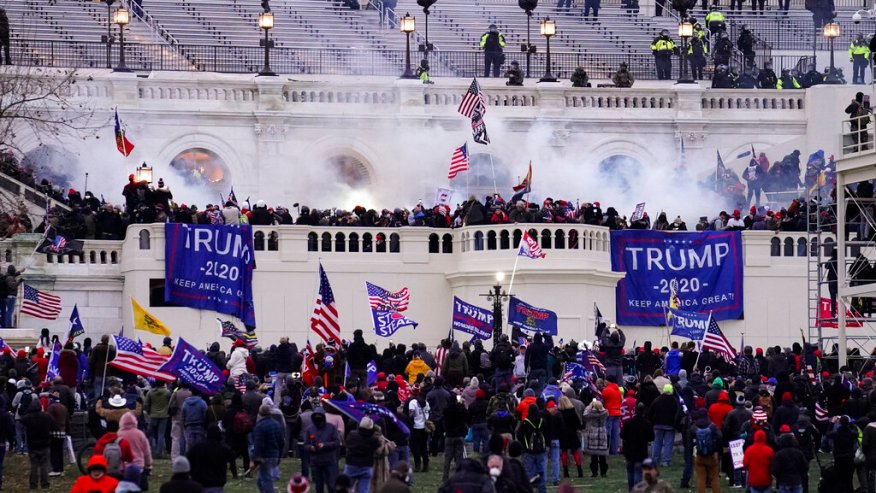Three Years After Jan. 6: A Nation Divided in Denial, Wrestling With Accountability
Tomorrow is Jan. 6, the three-year mark from the televised Capitol riot toward ending the counting of the presidential vote — that we all watched.
Yet, we’re still arguing that the violence and harshness of the day even happened, not to mention reaching a consensus on accountability. It represents what we should all recognize as the culmination of a scheme to stop the vote based on unsubstantiated claims of widespread voter fraud.
A handful of people died that day, mostly Capitol police officers. Scores were injured amid the Capitol break-in and fighting with Donald Trump-festooned followers — uniformed white supremacist militia members and those carrying Confederate flags and zip tie restrainers into the House and Senate chambers in search of lawmakers to capture.
And still, three years and 1,000 prosecutions later, Republicans are more sympathetic to those who stormed the U.S. Capitol and more likely to absolve Trump of responsibility for the attack than they were in 2021, according to a Washington Post-University of Maryland poll. In follow-up interviews, some respondents said their views have changed because they believe the riot was instigated by law enforcement to suppress political dissent — a baseless conspiracy theory promoted in right-wing media and by Trump.
Some 55% of those polled believe the storming of the Capitol was “an attack on democracy that should never be forgotten,” with majorities of Democrats and Independents holding this view. But most Republicans and Trump voters reject this view, and only 14% of those voters think Trump had any role at all.
A sizeable segment of the country has given up on whether there was a riot, labeled insurrection or not. How can we agree on anything to do about Jan. 6 if there is a refusal to recognize that it happened? Why is it so hard to say what was, without regard to what should happen?
Mass Denial
We’ve seen mass denial before. We have Holocaust deniers, the Alex Jones crowd who deny school shootings, those even in Congress who are seeking to rewrite that Russia invaded Ukraine. Republican presidential candidate Nikki Haley is in trouble for failing to connect slavery as a main cause for the Civil War.
Truth, even historic, documented proof, has become rare wine.
Trump remains so far in front of the Republican presidential field even as he faces multiple criminal charges, including several related to the Jan. 6 attacks, that he remains a credible threat to return to the White House against a Joe Biden. Biden, at just three years older than Trump, is seen as too old to win the election again in 2024 — as if democracy itself isn’t at stake.
As courts and state election officials spar over whether a Constitutional Amendment barring those who engage in or aid and abet insurrection or rebellion applies to Trump, Trump lawyer Christina Bobb stunningly argued to a radio interviewer that Trump and any other former presidents organizing a Capitol attack be allowed on presidential ballots “whether they’re guilty of insurrection or not.”
In his appeal of the Colorado Supreme Court decision that he should not be on the primary ballot in that state, Trump is asking the Supreme Court not only to reverse the qualification ruling, but also a finding of fact from the trial judge that he participated in an insurrection — or that an insurrection attempt even had taken place.
It’s not even a given that the courts will knock down a claim of immunity from any act as president, however potentially criminal — a principle he easily claims as a former president and a would-be president.
It may be that Trump will never be convicted of a criminal charge related to Jan. 6, just as he avoided conviction on an impeachment charge brought after his presidency. But that doesn’t mean he wasn’t using the White House as a coordinator for multiple election plots to undercut the 2020 election results, efforts that culminated in those Capitol riots.
As an anniversary, the three-year date doesn’t mean much. As a measure of our ability or even desire for national, partisan self-delusion, it seems huge.




